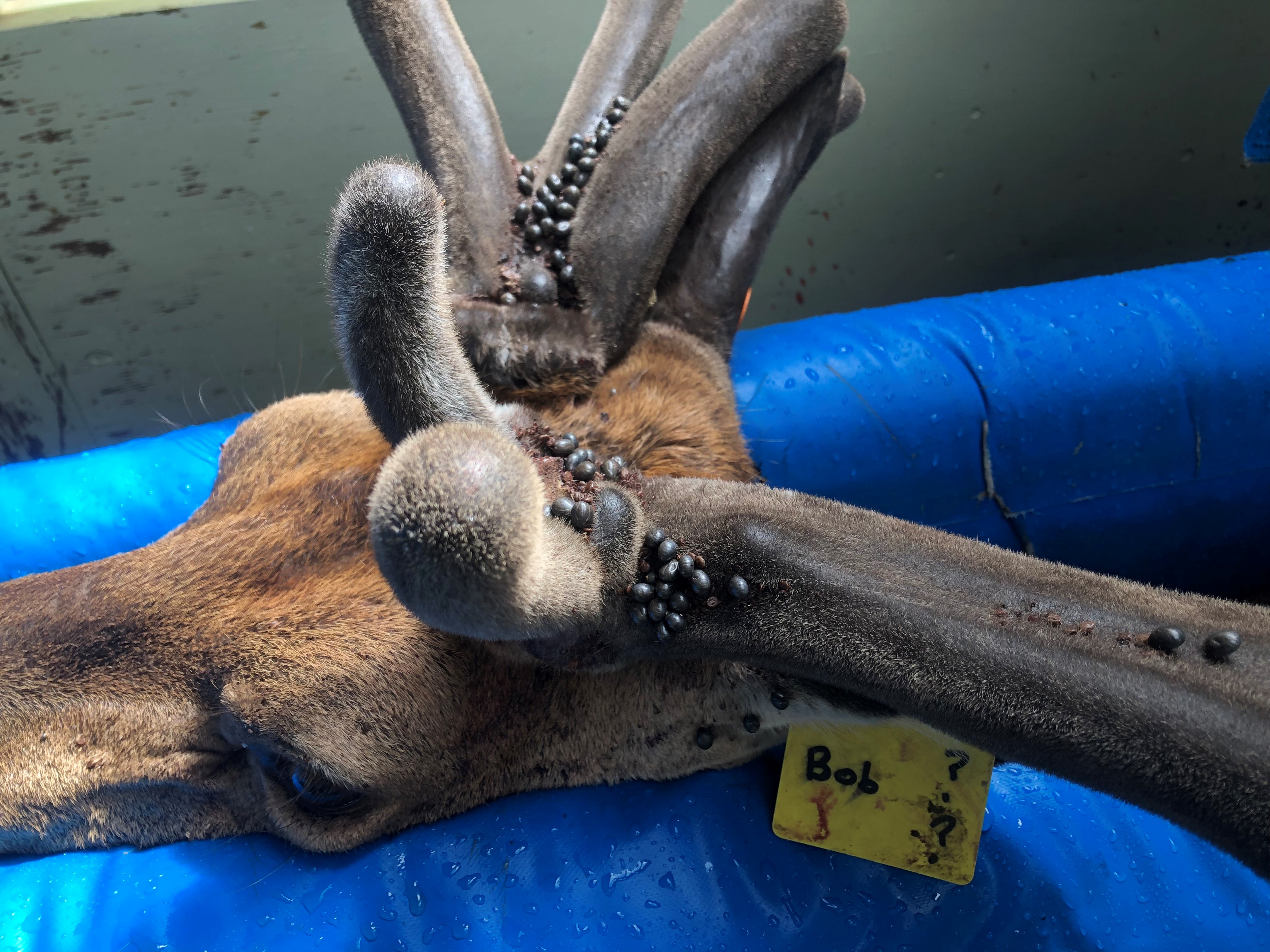Prevention is key for ticks

Ticks on a stag. Ticks start off red/brown and then turn blue-black after feeding. Photo: Supplied.
Ticks, a parasite that need blood to survive, are still a tricky parasite to control that can seriously affect animal health.
They prefer warmer regions and an increased presence has been noted in Tasman.
Ticks feed off a range of hosts including mammals, reptiles, birds, and amphibians. They can make animals very sick as well as present a threat to human health, as they can transmit bacteria, viruses, or parasites through their bites.
Ticks can cause anaemia and mortality.
Kim Rowe, who has been farming deer with his wife Judith in Stanley Brook near Tapawera for the past 17 years, says tick prevention is key.
“Do not import ticks onto your property, it’s really important as you can’t get rid of them. Ask questions like where is the stock coming from? Do they have ticks? What parasites have these animals had and what have been the control measures?”
Kim says that ticks can significantly affect the quality of the velvet.
“Even if we manage to remove the tick from the velvet, it leaves scars that reduce the overall quality, therefore prevention is key for animal health and quality velvet.”
Kim now uses tick tags on the farm, which are ear tags containing slow-release tick control, pyrethroid compound.
“Stags get 2 tags, one in each ear. They are left on for around 16 weeks and then removed so as not to give a sub-lethal dose and start resistance. We have found the tick tags to be hugely beneficial,” she says.
Danielle Brown from Redwood Valley says that this is the first year she has found or seen ticks.
“I knew straight away they were ticks, however I had never seen them on our animals before,” she explains. “We are following the instructions from our vets and treating all the animals we have, not just the horses and dogs.”
Annette McFadgen from Richmond’s Town and Country Vet says that if you think you have something that could be a tick, take a photo on your phone and email it to your vet who can help you identify it.
